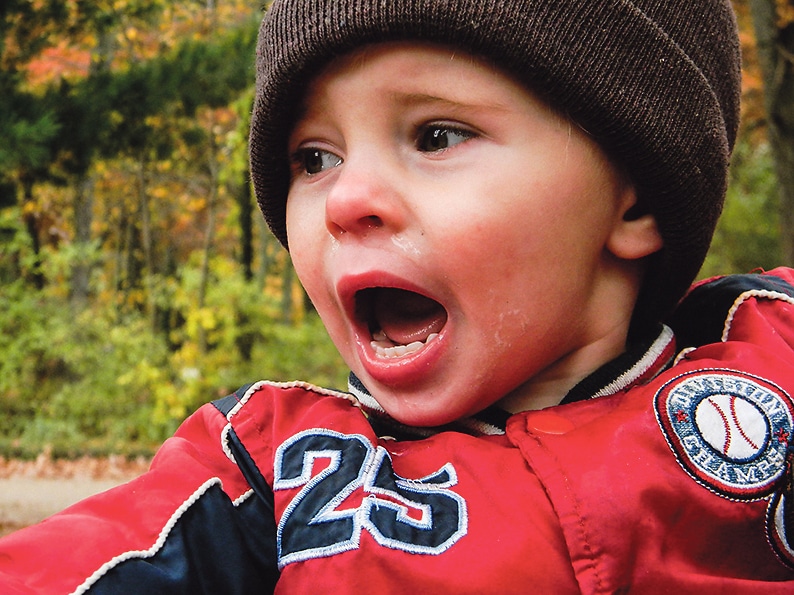In this series of articles (‘Do we understand our child?’) Diana Radeva, child and adolescent psychotherapist sets out to consider the emotional life of children from birth onwards; and how relationships between children and parents evolve over time. It is a view of human growth, which recognises the importance of strong feelings experienced at each stage of development; thus offering ways that parents might find helpful when wanting to better understand their children’s growth. In the final article in the series Diana looks at the middle months of baby’s first year.

The two-year old is poised on the cusp between babyhood and childhood. Eagerly reaching out to be one of the big ones, he or she is filled with ambition and often can be sophisticated in understanding and achieving. But this achievement is fragile, the clever boy or girl collapses easily and we see again that we have a baby here, wanting a good deal of the intimate nurturing that the baby gets.
Toddlers are learning what they can and what they can’t do. This is an age of extremes. Nothing is so abject as a downcast desperate toddler, and nothing is so full of pure delight as an elated one. Their method of dealing with life is by taking up extreme positions, and of course they are thoroughly unbalanced as a result. Part of the toddler’s extreme view of the world is bound up with the reality of his or her age and stage. Toddlers are physically very small.
To begin with, two-year-olds are like people in charge of a big, crude machine. They lack subtlety. If something looks nasty, they may refuse it with all their energy, never mind that last time they accepted it eagerly. They do however, need, at least sometimes, to be treated with the thoughtfulness, which they themselves cannot achieve. It can be almost automatic to fall into the toddler’s own mode and join the battle. When we join battle with a toddler there is a huge difference between ‘taking over’ when necessary and knowing within ourselves that we have ‘lost it’, really become deeply angry and stirred and not able to rein that in. The truth is that the raw nature of the toddler’s feelings can set fire to something, which is almost equally primitive.
Many issues that children face at this age (sleeping, feeding, toilet-training) are potential areas of anxiety in the life of the two-year old as they all relate to the central point of development at this age: this is an age where some crucial facts about separation and loss have to be faced in order to for the development of independence and a sense of self to take place. Being able to feed yourself, face going into the dark on your own, take charge of your own toileting, all are points of growth. You have to say goodbye to the life of the dependent baby, a life where you were fed, rocked to sleep, your nappy changed.
Hard work
I think it is important to acknowledge how complicated and demanding the job of bringing up a two-year can be. Small children are hard to be with twenty-four hours per day. One reason for this is the link with our own earliest experiences – we have all been two-year-olds, and this is the experience that we draw on, even without realising it. When our children arrive at the toddler’s stage, our own toddler years are re-evoked, ghostly and powerful, out of sight. On the plus side, this is itself an advantage. This is how we understand what it is like, to be them. We need to be close to how they feel, but at the same time we must hang on to what we know as adults. The pull between the two produces a tension, which is tiring.
When to worry
Many parents of small children worry a good deal, on and off. Very small children can’t manage their problems, conflicts, fears or anxieties; caring for them brings very specific type of mental intimacy. We feel with and for them, and we tend to up and down with them.
What about problems that don’t go away? There is a simple rule of thumb which says, ‘Look round at all the aspects of child’s life. Is he eating? Sleeping? Getting on with other children? Enjoying himself? Learning new things?’ If the disturbance is in only ‘some’ areas, it seems reasonable to wait and see, or perhaps to give a touch of back to baby care.
However, if there are more considerable difficulties within the family we should take into account that two-year-olds often act like a gauge, a sort of thermometer, reacting to the weather or the temperature in the family.
It’s important to keep in mind that human beings are both resourceful and adaptable. We need to remember, when we consider small children, how vulnerable and dependent they are. The lively, developing two-year-old is, at the same time, the point of hope in the family, a hope that things will go well and perhaps better than in the past.
Getting to grips with the idea that you are neither lord of the universe nor a lowly worm is a lifetime’s job. Two-year-olds in this year of their lives are forging ahead to learn what they can truly achieve, what actual control they have over themselves and their surroundings; and they are continuing the process of setting the foundations of their grown-up characters.


